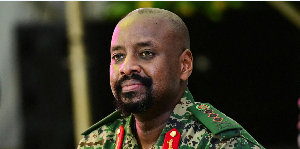A lot is currently being said or written about the poor performance or lack of performance on the part of President Mills’ administration. His own mentor and political protégé former President Rawlings has a whole dictionary to describe Mills’ administration. From poverty of ideas to ruling the country with illiterates, the founder of the NDC has described Mills as a one-term president. The grass root party is in turmoil with needless militarism and constituency elections turning violent. However the fact that Mills is not performing and his party is in factional fights and that the prophesy of one-term has been pronounced by the maker and un-maker of the NDC party does not automatically translate into electoral gains for the NPP.
The NPP as a party has its own woes and bleeding wounds that do not augur well for 2012 if steps are not taken to stop the bleeding. The recent polling station elections disputes and the apparent lack of fairness in some of the elections, coupled with members who are bad losers and therefore hit the indiscipline trail and spurn the call for unity and finally the gaping factionalism that is threatening to tear the party from top to bottom are all symptoms that show that all is not well and that the party is not yet mobilised to hit the campaign trail for 2012.
Having said what I have about the fortunes of NPP and the NDC, come what may in 2012 there will be an elections and one of the two parties will emerge victors. How then will the election be fought and won? It will be based on the current election process which according to Dr. Afari-Gyan, has no “collective sense of ownership on the part of any of the political parties” It will be based on the current system which has no means of avoiding multiple voting, the protection of ballot boxes by the security services and the speedy adjudication of election dispute.
If we are to ensure the integrity of the electoral system, which will survive individuals and can stand the test of time by pre-emptying many of the troubles that have derailed many democracies in Africa, then we have to move beyond the present system. The NDC have nothing to lose from the present system because it suits their modus operandi very well.
According to the NDC, through their mouthpiece Okudzeto Ablakwa, all free and fair elections require is the manual and the manipulable system we have today – the analogue system in a vastly digital world of electoral systems. In his address to the WASU in Nigeria he said “First of all, it is important that we all agree that conducting a free, fair and transparent election is not rocket science. It is indeed a basic and simple task. We are talking about ordinary plastic boxes, ordinary paper, ordinary indelible inks and people of our own kind who queue just like the way they queue at the transport yard any other day – in this basic exercise. (Oct 22, 2009 at Kaduna WASU). This is the kind of free and fair elections that the NDC will continue to uphold because it gives them the opportunity to engage the services of “weapons, macho men, self-styled Olympic athletes who run away with ballot boxes and magical electoral officials who declare results for polling stations where not a single person voted”, according to the NDC Deputy Information Minister at the same forum. The government has no appetite to prevent duplicate votes, electoral malpractices or ensure democratic environment. To them the present system is not broken; it suits them fine, so why change it.
The double speak of the NDC emerged when at the last IPAC meeting at Akosombo in May this year, the ruling party was forced to agree with all the other political parties to identify biometric system of voter's registration as a key mechanism against multiple voting and impersonation in Ghana's electoral system. Though the IPAC has charged the Electoral Commission (EC) to initiate systematic procedures to use the biometric mechanism for capturing data in preparation of the next voters register, as a necessity “to deal authoritatively with practices of multiple voting and impersonation that tend to undermine public confidence in declared election results," the NDC as the ruling party and therefore has the executive mandate to implement this is using every opportunity it gets to postpone the urgency of the idea or even scupper it. On July 16 Hon. Haruna Iddrisu, Minister of Communications, said government had targeted 2016 for the implementation of biometric voting system in Ghana. Speaking on behalf of the NDC government that is committed to everything but does absolutely nothing, he said "Government is ready to ensure that e-voting becomes a reality in 2016. Why 2016? The answer is simple. If they lose in 2012, they will want a freer and fairer elections in 2016 and they know that biometric voting system is the answer. If they win in 2012, they would have ended their proverbial 8 year rule in Ghana in 2016 and therefore will be prepared to gamble with the fairer system.
Institutions that support good governance like the NCCE, KAB Governance Consult, The Canadian International Development Agency (CIDA), CDD Ghana, the APRM have all called at one point in time or the other for some form of e-voting for Ghana as a way to avoid multiple voting. Prominent statesmen such as former president Kufuor have also intimated his favour for biometric voting system.
The NPP as the largest party in opposition, owe it to Ghanaians to begin the journey to force the issue on electronic voting in 2012 in Ghana. Mozambique, one of the poorest states of Africa, has now adopted biometric voting system in local, provincial and national elections. In 2008 they implemented biometrics by combining the partnership between Face Technology of South Africa and QiSQi. The possibility is there but the will of the government in Ghana is very lacking. While the government is talking about 2016, Dr. Afari-Gyan the Electoral Commissioner has indicated that that it could be possible for the nation to phase into the biometric voters registration system after the national census in 2010.
In 1998, the NPP as a political party in opposition managed to source funds from the Scandinavia to introduce the transparent ballot box system which is the only transparent aspect of our voting system today. The former President Kufuor should use his position and stature in the international community to source funds for the electoral commission to get the necessary software and expertise to implement biometric voting in 2012.
The lessons that were learnt during and after the 2008 election should teach us that our democracy has so much going against it than for it. It was the most trying moment of our 17 year old democracy when it took less than 0.1% difference in votes cast to declare election results. For us as a country the time has come for us to stop people with clubs and cutlasses wishing particular election results. We have to put an end to the sound of the bullet cowing us into submission. We have to prevent partisan macho men making mockery of our democracy and partisan radio stations declaring election results ahead of the Electoral Commission. The vox populi is the vox Dei and the true voice of the people is that which is declared by the people themselves. Biometric voting has been proved world wide to be the best method to cure all the ills that our present voting system has and when do we want it? NOW!!
Kwesi Atta-Krufi, Hayford.
.
Opinions of Thursday, 26 November 2009
Columnist: Atta-Krufi, Hayford














